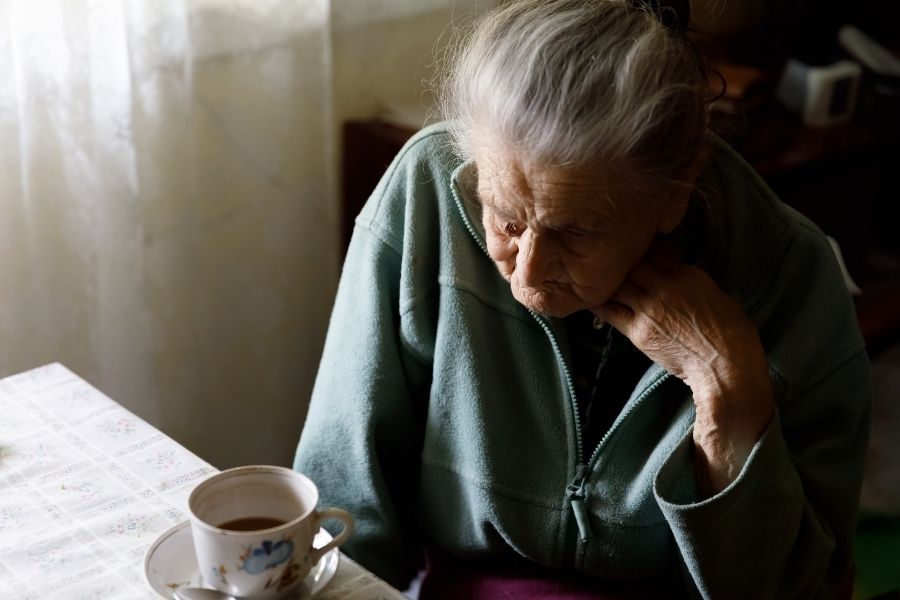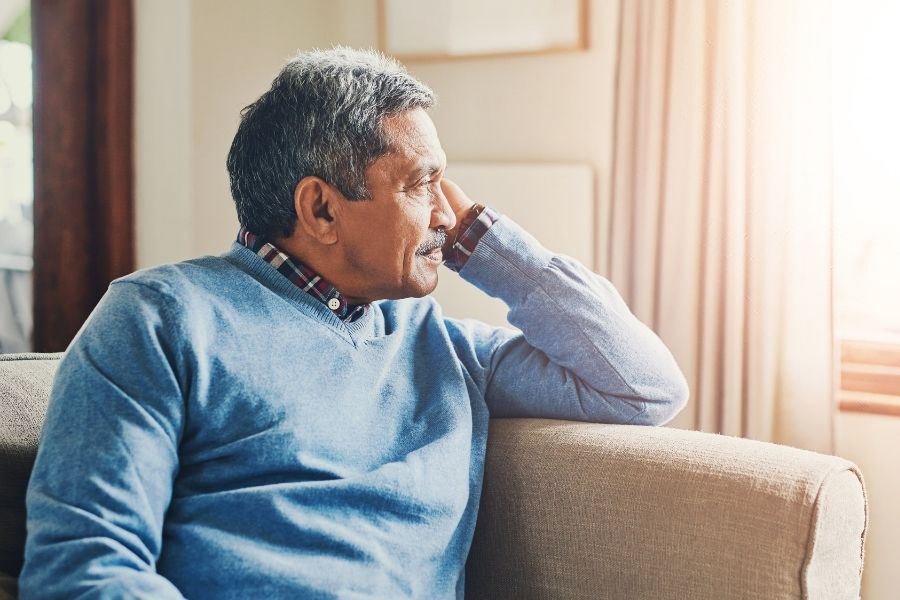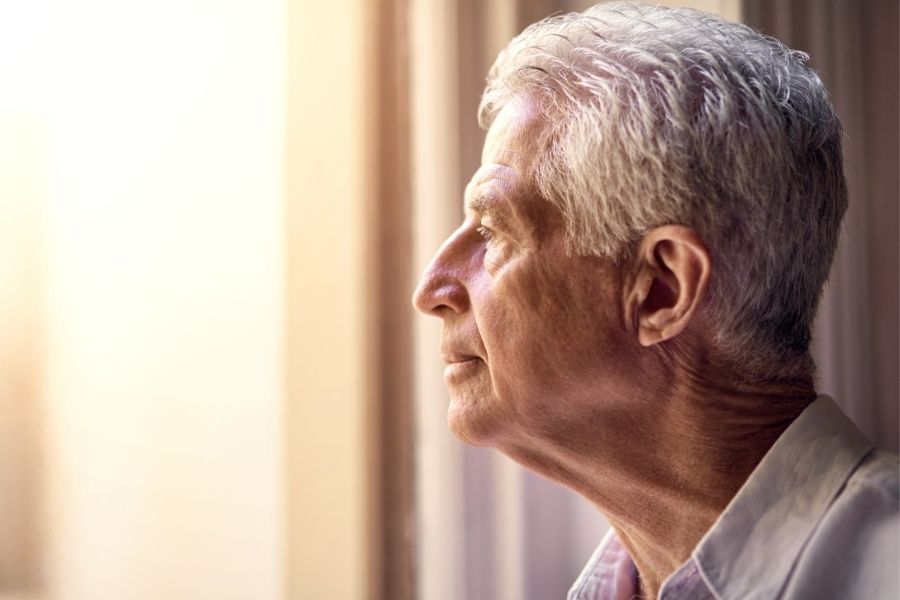At first, she was her usual chatty self. The 76-year-old woman was at the local vegetable stall, smiling, chatting away about her son's recent promotion, the jewellery she had made for her future daughter-in-law, her pension, and her aching knees. Her son, a 40-year-old corporate professional, stood a few feet away, red-faced with embarrassment. It wasn’t the first time his mother had “overshared” in public, and once again, he snapped at her when they got home.
The scolding silenced her.
From that day, the cheerful woman stopped talking at family gatherings, stopped laughing, and stopped leaving her room altogether. Weeks later, she was diagnosed with depression.
Psychiatrists call it ‘agitated depression.’ But it's often mistaken for stubbornness, nagging, or eccentricity. The truth is more troubling — and more common than we care to admit.
According to psychiatrist Anupam Barik, formerly working with Calcutta Pavlov Hospital, “The most common cause of depression in the elderly is loneliness. After 60, people retire, their social circles shrink, and many live alone. Their tolerance decreases, they become irritable, less active, and sometimes suicidal thoughts creep in. It's a dangerous spiral that often goes unnoticed.”

Depression in the elderly looks different. It starts subtly — sleeping more, eating less, or becoming agitated Shutterstock
Recently in Kolkata, a 77-year-old lawyer jumped to his death from the seventh-floor corridor of the Sales Tax Building at Beliaghata. He was undergoing therapy for the last several months for depression.
Barik added, “Depression in the elderly looks different. It starts subtly — sleeping more, eating less, or becoming agitated. The mornings are hardest. They lie in bed longer, avoid routines. If left untreated, it can become fatal.”
Pousali Das, a psychologist, who regularly counsels elderly patients in Kolkata, sees this pattern far too often. “Initially, parents feel proud when their children go abroad. But things change by their 70s. They fall ill, lose mobility, and realise they have to visit doctors alone, undergo tests without help. That’s when the cracks begin to show.”
She recalls cases where elderly people kept a deceased spouse’s body in the house for days, unable to accept their death. “They can't bear the idea of being completely alone. Delusions set in. They believe the person is just unconscious — that they’ll wake up.”
Dipankar Debnath, a geriatrician and founder of a senior citizens’ care programme in Kolkata, confirms that nearly 90 per cent of his elderly patients experience some form of depression. “It’s often triggered by loss of a spouse, health, or dignity. Even the fear of falling ill at midnight without anyone to help can cause chronic anxiety. Many seniors have successful children, but still feel abandoned. That mental stress translates into physical problems too.”
His clinic offers regular companionship, counselling, and phone check-ins. “Sometimes, just knowing someone will call is enough to lift their mood. That human connection is medicine for them.”

Social isolation, doctors say, can be worsened by technology Shutterstock
Social isolation, Das said, is now worsened by technology. “Video calls help, but also hurt. Elderly parents see their children enjoying vacations, parties, and they feel left out. A WhatsApp call can’t replace a hug. Children must maintain emotional connections, not just financial support.”
However, not all stories are bleak. Many have found their way to channelise their free time through productive engagements that keep their mind stimulated.
Soma Roy, 66, a retired professor, shared, “I'm a retired associate professor of English, and like many others, have been a patient of depression for the past 15 years. So after retirement, I'm not particularly disturbed or even depressed. There's so much to do — all those unread books stare at me from the shelves. I listen to the birds these days and identify each chirp and tweet as being distinct from one another. I have started watching dramas again. I belong to a club where we listen to music together. And I reconnect with old friends, hang out with the usual ones more than before. Managing finances is tough though, since I am single and hence in charge of running the show.”

Not all stories are bleak. Many have found their way to channelise their free time through productive engagements that keeps their mind stimulated Shutterstock
Her words echo what doctors say is key: retaining curiosity, staying engaged, and forging connections. So has 78-year-old Shyamal Mukherjee, a retired bank officer, who now runs a local book club. “After my wife passed away, the silence was crushing. I didn’t speak for weeks. Then, a neighbour lent me a novel. I finished it in one sitting. Now, every Sunday, five of us meet, read, and argue about Tagore. It gave me a reason to get out of bed.”
His advice to others? “Don’t wait for someone to save you from loneliness. Reach out. Call a friend. Start something.”
Then there’s Rita Ambett, 74, a retired teacher, who finds joy in volunteering and simple pleasures. “I garden, cook, paint bottles, and knit blankets. I’m housebound, but never bored or depressed — thankfully.”
Still, not everyone can rebuild themselves alone, say experts. Which is why those around them — family, neighbours, communities — must step up. Because sometimes, all it takes to save a life is to notice when the chatter stops.
Doctors emphasise that depression post-retirement isn't unusual, but it is manageable with timely care and community support. “An old-age home is not a bad option for elderly people. They get peers and proper care. Many elderly people choose to go to an old-age home voluntarily, leaving their own houses,” said Barik.
Das concluded, “The general physician and medical doctors will need to detect signs of depression and encourage elderly people to seek help for it. It has to be normalised like other ailments. Additionally, reuniting with old friends and colleagues over social media might help. Children living abroad will need to include parents via video calls. Finally, government initiatives could intervene and help to provide the much needed support. Then only will the outreach be widespread.”
